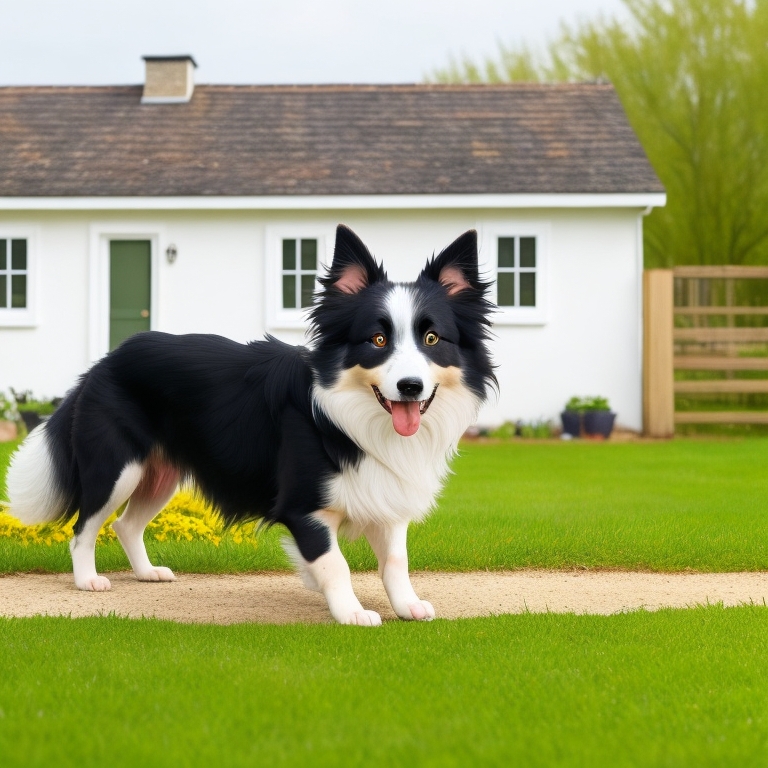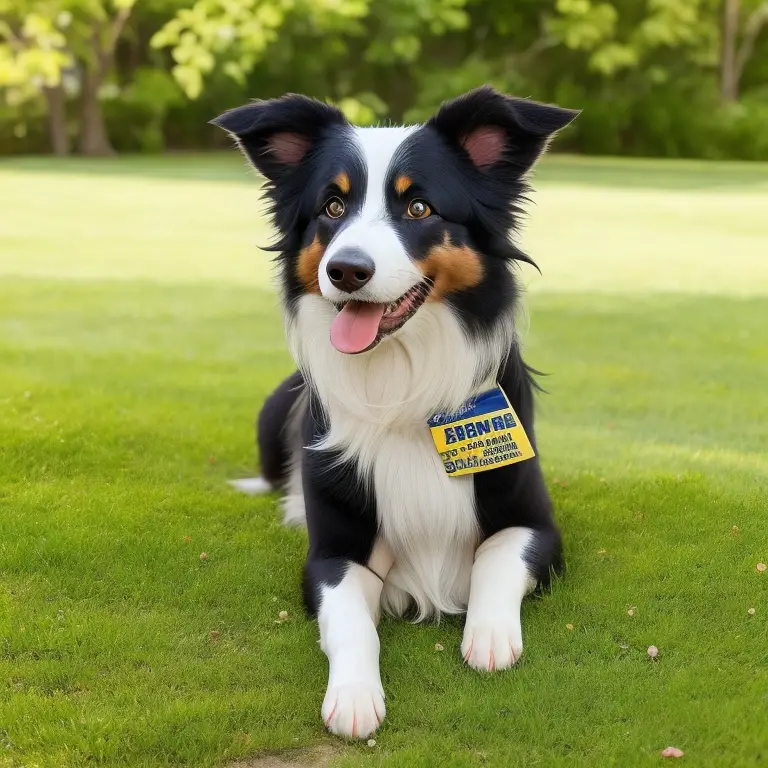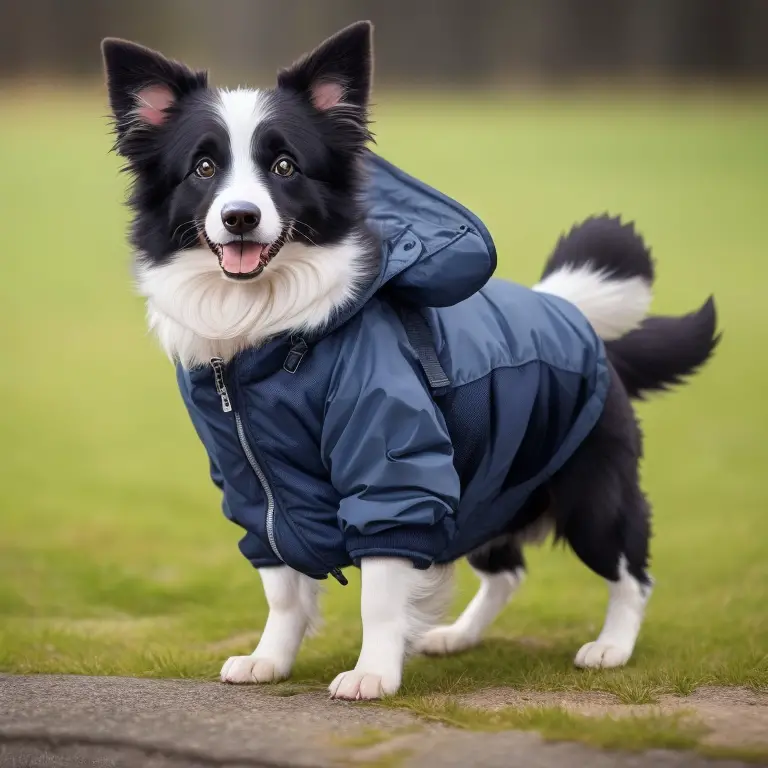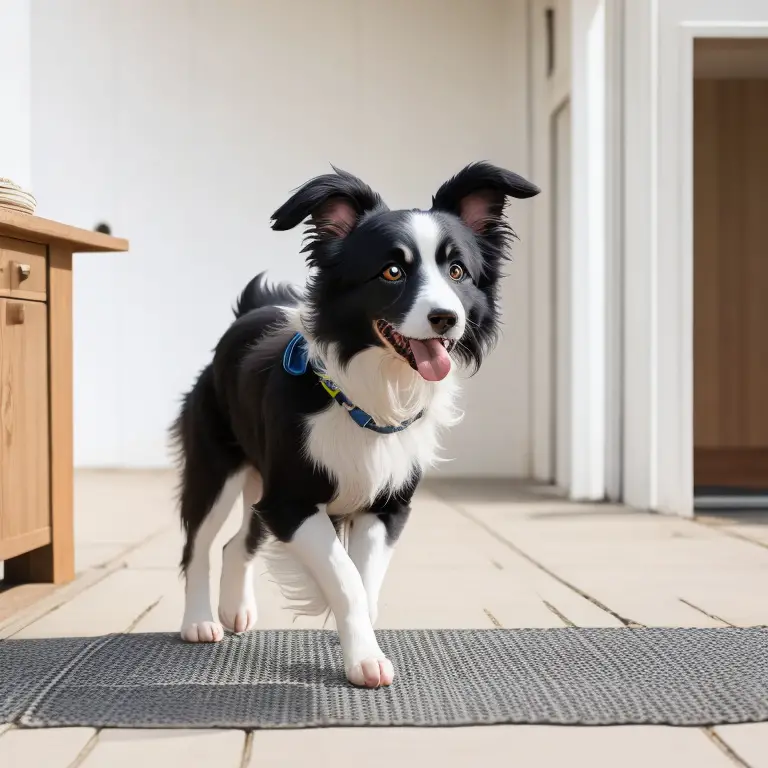Are Border Collies Good With Other Dogs Of The Same Sex?
Are Border Collies friendly with other dogs of the same sex? It has been a matter of debate among pet parents, especially those who have same-sex dogs in their household.
Border Collies, being intelligent and high-energy dogs, require proper training and socialization to interact positively with their furry friends.
In this article, we’ll discuss the temperaments of Border Collies, the significance of proper training, and ways to socialize your Border Collie with same-sex dogs. We’ll also talk about when to seek professional help for aggressive behavior and finding the right dog trainer.
Keep reading to learn more about Border Collies and their behavior with same-sex dogs.
| Criteria | Border Collies | Other dogs of the same sex |
| Temperament | Friendly and intelligent | Varies from dog to dog |
| Socialization | Need ample socialization to prevent aggression or fearfulness | Need ample socialization to prevent aggression or fearfulness |
| Training | Highly trainable and obedient | Varies from dog to dog |
| Physical Exercise | Require high daily exercise | Varies from dog to dog |
| Mental Exercise | Require high daily stimulation and mental exercise | Varies from dog to dog |
| Overall Compatibility | Can be good with other dogs of the same sex if socialized and trained properly | Can be good with Border Collies if socialized and trained properly |
Understanding Border Collies
Border Collie Breeds and Temperaments
Border Collies are highly intelligent and energetic dogs, known for their herding skills and trainability. They are a medium-sized breed, usually weighing between 30 and 45 pounds, and can live up to 15 years.
As a breed, Border Collies are generally friendly and affectionate towards their family members and people they know.
They may be reserved or cautious around strangers, but they are not aggressive by nature. Border Collies also tend to be good with children, although they may try to herd them like they would with livestock.
It’s important to supervise interactions between young children and dogs to prevent accidents, as Border Collies can be hyperactive and may accidentally knock over small children.
In terms of temperament with other dogs, Border Collies can get along well with other pets if they are socialized from an early age. They may display some herding behavior towards other dogs, but as long as they are properly trained and socialized, they can live peacefully in multi-dog households.
Overall, Border Collies are loyal and loving pets that require regular exercise and mental stimulation.
They can make great additions to families who are willing to provide them with the attention and care they need.
Training your Border Collie
Training your Border Collie is vital to ensuring that he/she is well-behaved, obedient, and happy. Border Collies are highly intelligent and can be trained to perform various tasks, including herding, agility exercises, and obedience training.
When training a Border Collie, it is crucial to use positive reinforcement techniques, such as treats and praise, rather than resorting to aversive methods.
Consistency is also vital when training your Border Collie, as they thrive on routine and predictability. To ensure that your Border Collie is well-trained, it is recommended to begin obedience training early, socialize them often and provide consistent positive training regularly.
Additionally, consider enrolling your Border Collie in formal obedience classes.
By training and socializing your Border Collie, you can ensure that they become well-behaved and socialized dogs, who can interact well with other dogs, including those of the same sex.
Border Collies and Same-Sex Dogs
Border Collies and Dominance
Border Collies are often thought to be dominant and aggressive dogs, especially towards other dogs of the same sex. However, this stereotype is not entirely accurate.
While Border Collies are known for their intelligence and determination, they are not naturally aggressive or dominant.
Dominance behavior in dogs is often a product of poor socialization or training, not breed temperament. That being said, Border Collies are highly trainable dogs.
Through proper training and socialization, you can reduce the likelihood of dominance issues developing in your Border Collie.
It’s essential to establish yourself as the alpha figure in your Border Collie’s life to prevent any dominant tendencies from emerging. Rewarding good behavior and establishing clear boundaries are keys to training a well-behaved and non-dominant Border Collie.
If you’re concerned about your Border Collie’s behavior, it’s best to seek professional help from a certified dog trainer or animal behaviorist.
With consistent training and patience, your Border Collie can learn to interact positively with other dogs and display non-dominant behavior.
Socializing your Border Collie
Socializing your Border Collie is essential if you want them to get along well with other dogs of the same sex. Border Collies can be quite dominant, and without proper socialization, they may display aggression towards other dogs.
Here are some tips for socializing your Border Collie:
- Start socializing early – Introduce your Border Collie to other dogs at a young age. This will help them learn how to interact with other dogs and prevent them from developing aggressive tendencies.
- Use positive reinforcement – Reward your Border Collie with treats and praise for good behavior around other dogs. This will help them associate positive experiences with being around other dogs.
- Gradual exposure – Introduce your Border Collie to other dogs gradually. Start with less intimidating dogs and gradually move up to more dominant breeds.
- Socialization classes – Consider enrolling your Border Collie in a socialization class to help them learn how to interact with other dogs in a controlled environment.
Remember, socializing your Border Collie is a continuous process. Continue to expose them to different dogs and situations regularly to ensure they remain well socialized.
With the proper socialization, your Border Collie can live harmoniously with other dogs of the same sex.

Tips for Introducing Border Collies to Same-Sex Dogs
Preparing your Border Collie for Meetings
Preparing your Border Collie for meetings with same-sex dogs is essential to ensure a smooth and stress-free introduction. Here are some tips to get your furry friend ready for their next meeting:
- Start with basic obedience training: Make sure your Border Collie is well-trained with basic commands such as “sit,” “stay,” and “come.” This will help you gain their attention during the meetings.
- Gradually expose them to other dogs: Start by introducing your Border Collie to one or two dogs at a time. Gradually increase the number of dogs and the setting where they meet.
- Use positive reinforcements: Reward your Border Collie with treats and praise for good behavior during meetings. This will help them associate positive experiences with other dogs.
- Watch their body language: Observe your dog’s body language during meetings, especially their ears, tail, and overall posture. If they seem stressed or uncomfortable, pause the meeting and try again later.
- Keep meetings short and supervised: Keep the meetings short, around 10-15 minutes for starters, and always supervise the interactions between your Border Collie and other dogs. This will help you intervene if necessary and prevent any unwanted behavior.
By following these tips, you can prepare your Border Collie for successful meetings with same-sex dogs.

Supervising your Border Collie during Meetings
Supervising your Border Collie during meetings with same-sex dogs is crucial to ensure a safe and positive interaction. Here are some essential tips on how to supervise your Border Collie during meetings:
- Always keep your Border Collie on a leash during meetings with other dogs. This will help you have control over your dog in case any issues arise.
- Observe your dog’s body language closely. Signs such as raised fur, tense body, and growling are possible signs of aggression. If you notice any of these signs, consider ending the meeting or separating the dogs.
- Keep a close eye on your dog’s playtime behavior. If your Border Collie is dominating or aggressive with other dogs, it may be necessary to limit their playtime together.
- Don’t let your Border Collie play unsupervised with other dogs. This is crucial especially when they are still in the introductory stage. Always monitor their interactions.
Finally, always praise and reward your Border Collie for good behavior during meetings with other dogs. With proper supervision and monitoring, your Border Collie can learn to interact positively with other same-sex dogs.
When to Seek Professional Training and Help
Signs of Aggression in Border Collies
Aggression in dogs can manifest in different ways, and Border Collies are no exception. It’s important to identify the signs of aggression in your Border Collie to take action before it escalates.
Some common signs of aggression in Border Collies include growling, snarling, snapping, biting, and lunging.
Your dog may also become rigid or tense, showing teeth or staring down other dogs as a threat. These aggressive behaviors should not be ignored or taken lightly.
If your Border Collie is displaying any of these signs of aggression, it’s essential to seek professional help from a dog trainer or behaviorist.
These professionals can assess your dog’s temperament, identify the root cause of the aggression, and provide personalized training to modify your dog’s behavior. It’s important to remember that aggression in dogs is complex and multifaceted.
It may arise due to fear, anxiety, territorial behavior, or lack of socialization.
Understanding the cause of your Border Collie’s aggression is crucial to determining the best course of action. Ignoring aggression in your Border Collie can lead to potentially dangerous situations for both your dog and other animals.
Seeking professional help and training is key to addressing these issues and ensuring that your dog can coexist peacefully with other dogs.
Finding a Good Dog Trainer
When it comes to finding a good dog trainer for your Border Collie, there are a few things to consider. Look for a trainer who has experience working with Border Collies specifically, as they have unique temperaments and require special training techniques.
Additionally, research trainers who use positive reinforcement methods rather than punishment-based approaches.
It’s important to choose a trainer who makes you and your dog feel comfortable and who is willing to work with you to create a personalized training plan. Ask for references and do some research on their credentials and reviews before making a decision.
If you encounter any signs of aggression or behavior issues with your Border Collie, seeking professional help is crucial.
A reputable dog trainer can help identify the root cause of the behavior and work with you to develop a plan to address it. Don’t hesitate to reach out for help when needed – it can make a significant difference in your dog’s overall well-being and happiness.
Conclusion
Understanding Border Collies and their temperaments, training, and socialization needs is crucial in ensuring a harmonious relationship with same-sex dogs. While Border Collies can be prone to dominance and aggression, proper introductions and supervision can make all the difference.
However, if you notice any signs of aggression, seeking the help of a professional dog trainer is recommended.
Remember to always prioritize the safety and well-being of your furry friends. By following these tips and taking the necessary precautions, you can confidently introduce your Border Collie to same-sex dogs and watch as they form lasting bonds and friendships.







